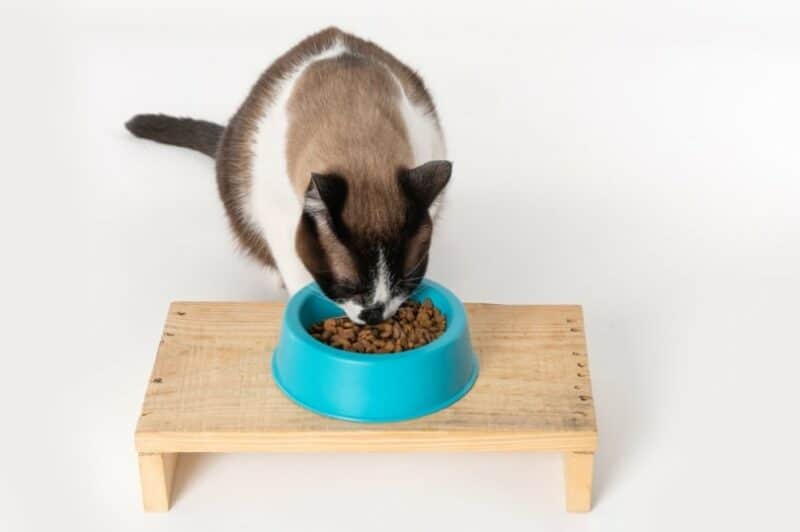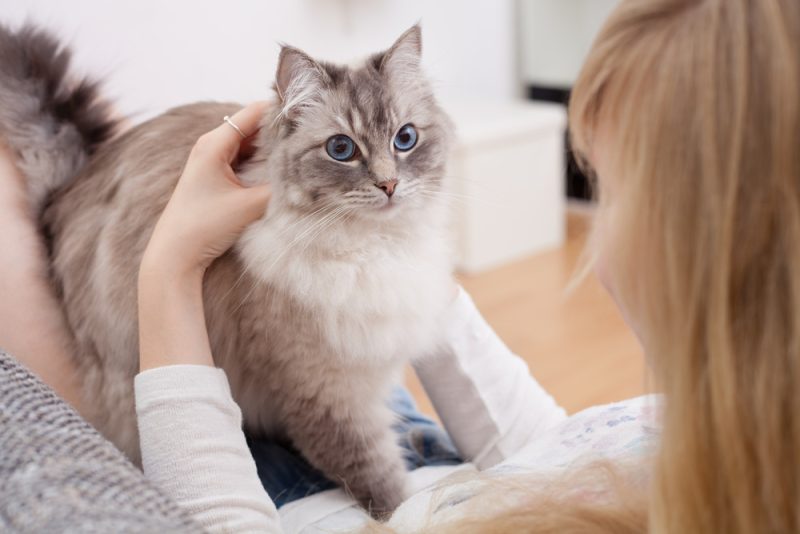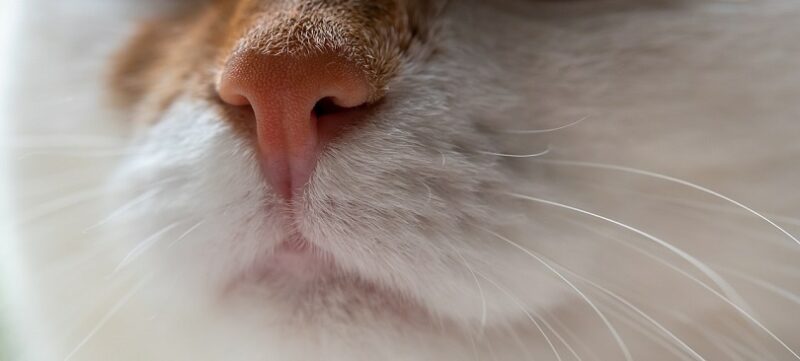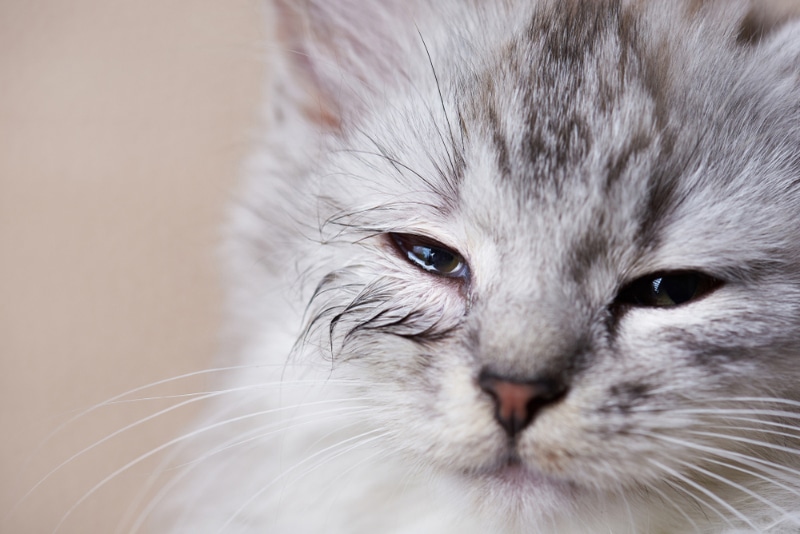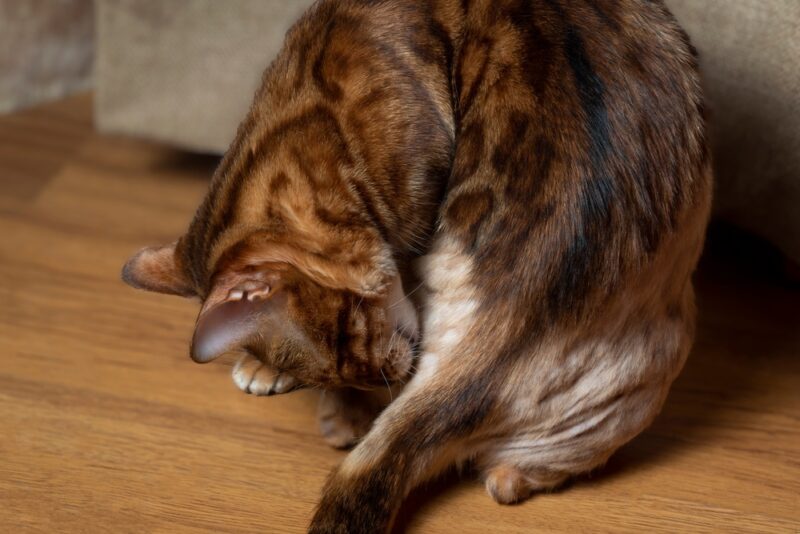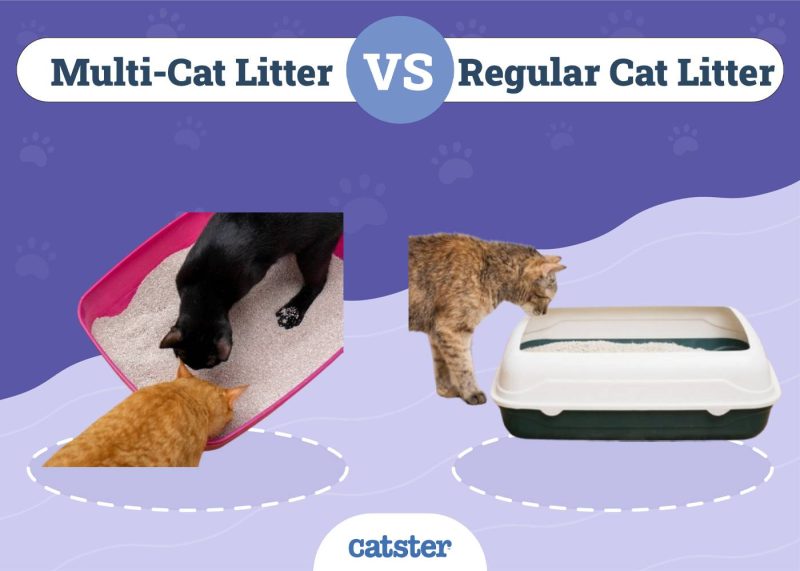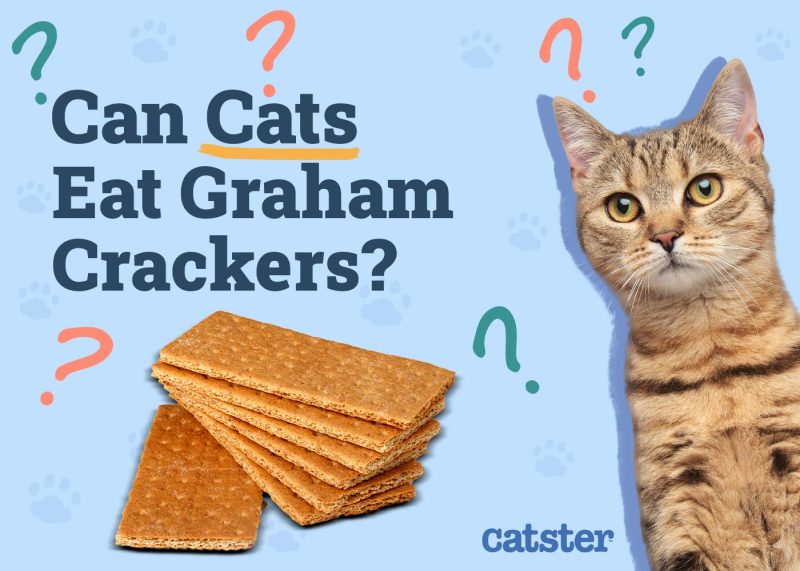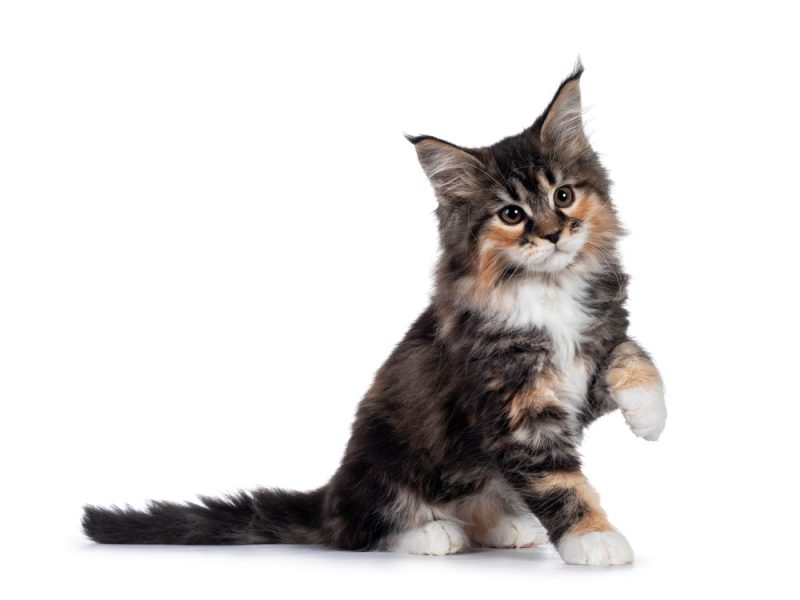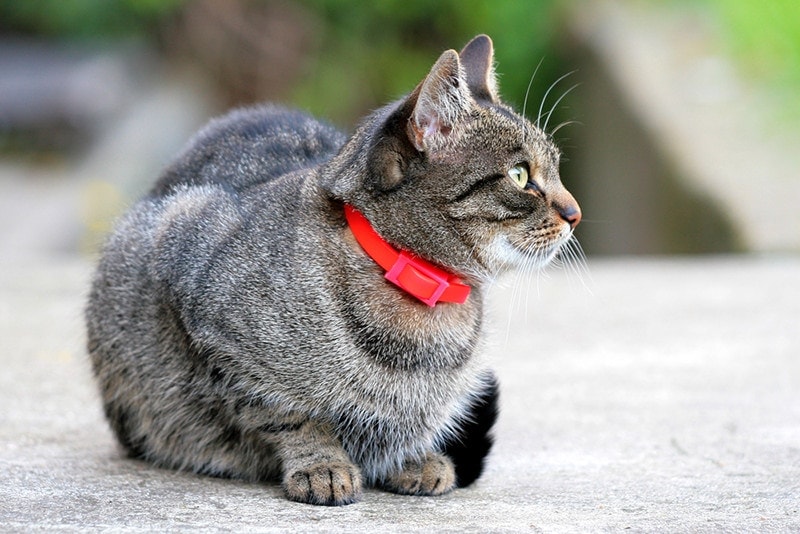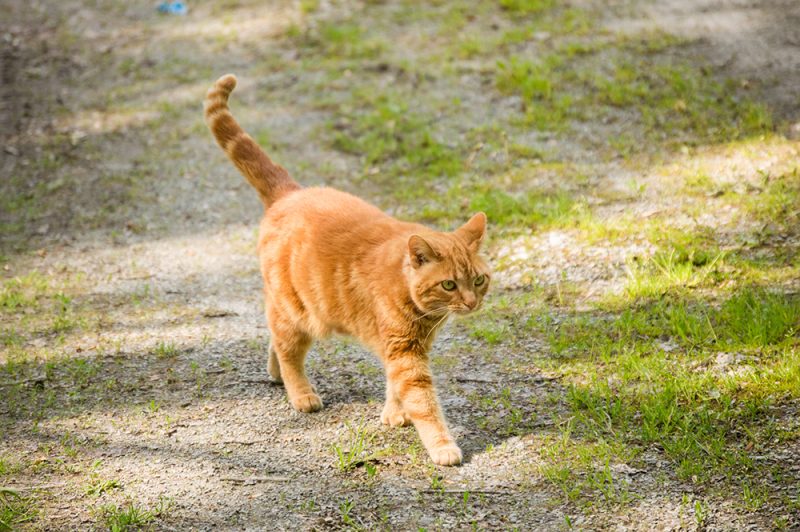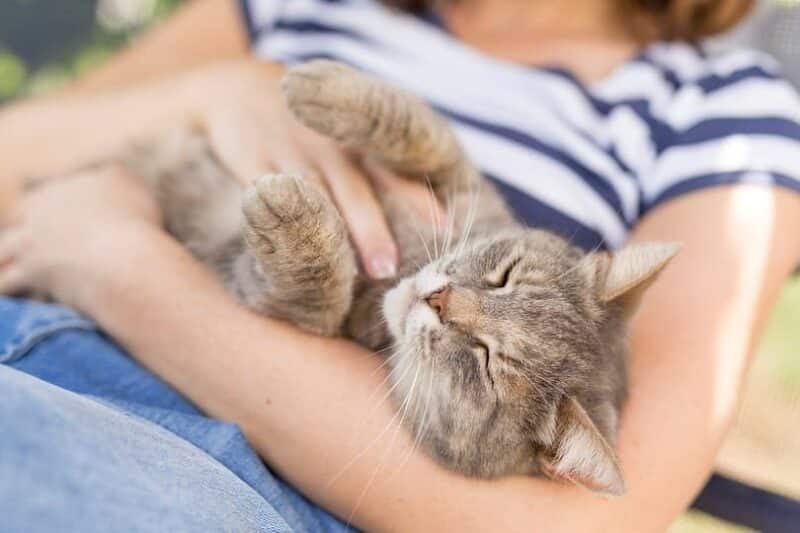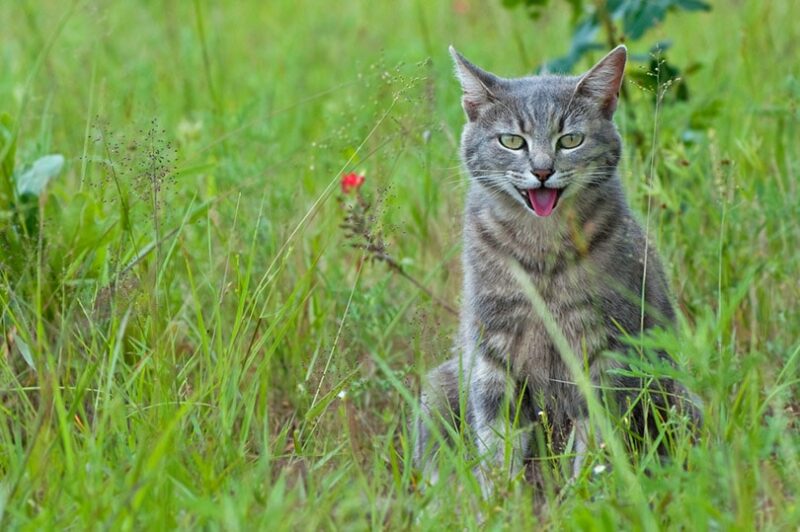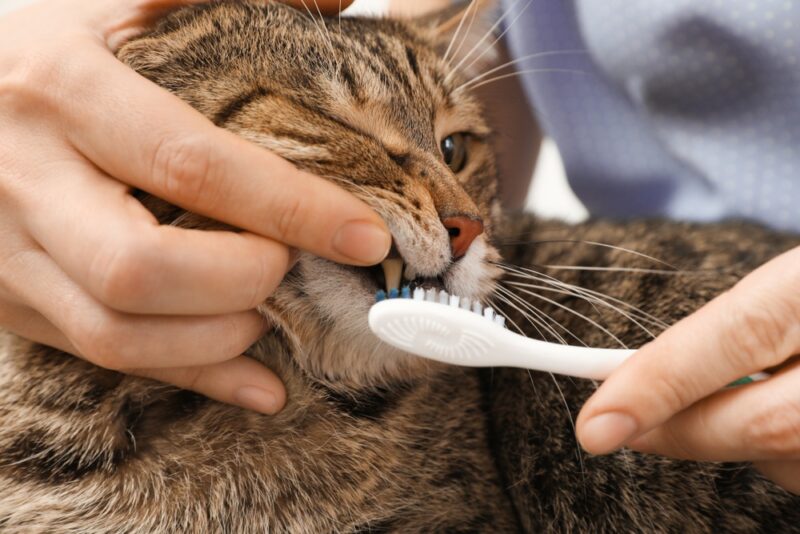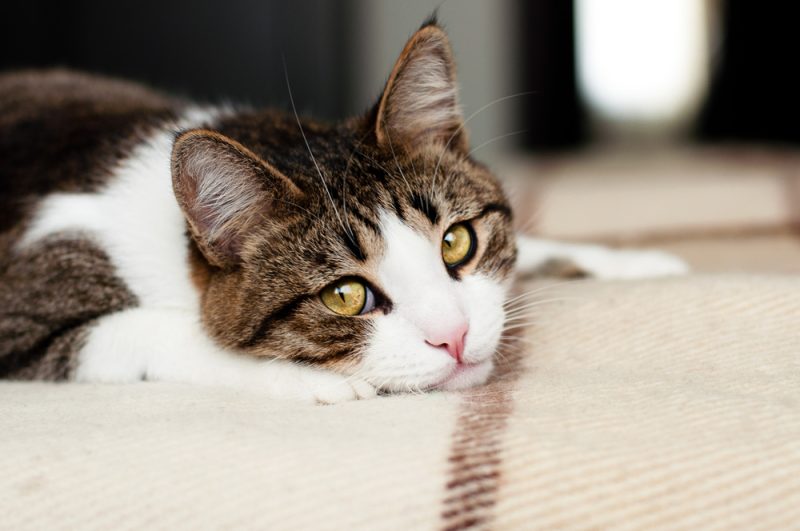Many of us take comfort in certain foods, like late-night ice cream, mac and cheese, or a hot bowl of chili. But do cats also stress-eat? Do they crave specific foods? It’s true that our kitties love to eat, but is it really the same?
The answer is simple: Cats that like to overindulge in food are generally bored or impulsively eating and may indeed have a preference for some foods or flavors over others. However, cats that are stressed or unwell usually don’t eat. Let’s explore the feline mental state and what we can do to improve this for our furry companions.
Cats and Comfort Food
Humans sometimes binge-eat or overindulge in food as a coping mechanism to deal with everyday stress. You might get into the chip bags more often during specific periods of high stress or indulge in other sweet and savory foods.
If your cat seems to be gorging themselves or otherwise overindulging in food, there might be several reasons for the behavior. However, generally speaking, cats do not eat when stressed, and in fact, a stressed cat is likely going to stop eating. Therefore, cats cannot be compared to humans in the context of overindulging in food due to stress.
Boredom
One of the main reasons cats overeat is that it’s a “boredom” response. Cats need lots of mental and physical stimulation; if they aren’t getting the proper exercise regimen, they might not be faring so well.
If you notice that your cat frequently visits the food bowl and naps, it could signify that they just need some excitement. Typically, having multiple cats really ups the ante when it comes to exercise.
If cats have playmates of the same species, they tend to be a lot more social, especially with one another. But if you have a single cat or one that doesn’t necessarily fit in with the others, you might notice that this issue is a bit more prominent in them.
No matter how many animals you have, don’t assume that cats are lazy pets that just eat and sleep. On the contrary, a healthy cat is active and curious and should spend much of their waking time exploring their habitat. Cats can and do eat out of boredom, especially if they have access to food at all times.
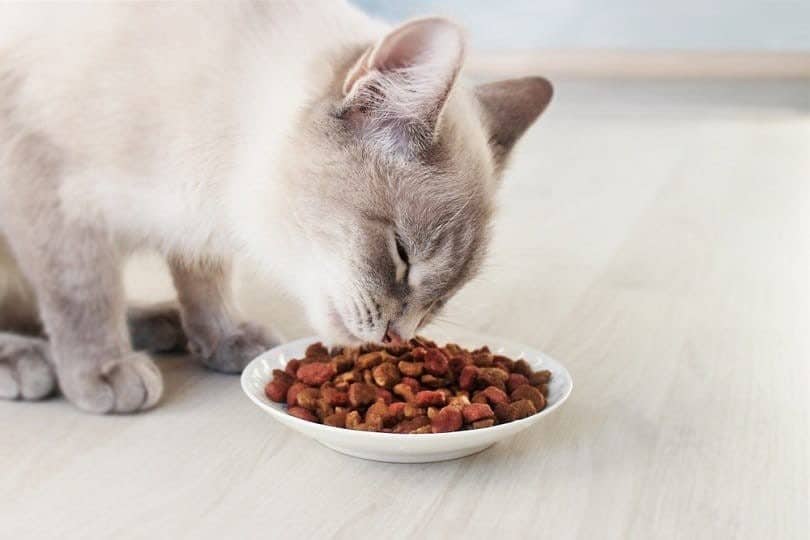
“Free” Food
Cats have the potential to “freeload” their food (eat without having to work), but studies on this phenomenon suggest that this should be done with caution1. They may prefer to eat food that they don’t have to do anything to get (for example, kibble left out for them to eat whenever they want), rather than having to “work” for food (for example, interacting with a food puzzle).
Cats in the wild work for their food and often have to try multiple times to get a successful hunt. It has also been observed that cats will continue to hunt and kill prey before eating prey that they’ve previously killed2.
Therefore, it is possible that your cat may overindulge in their favorite food or do food puzzles even when they aren’t hungry, as they find the habit comforting. Without adequate exercise, this can quickly lead to a pet that comfort eats and eventually becomes obese.
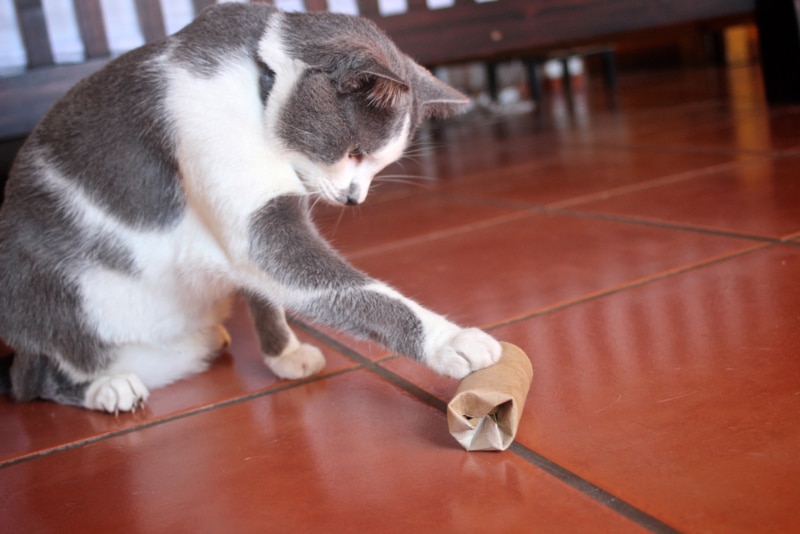
Food Preference: Gorging
Gorging is decently common in cats, and it’s not the same as stress eating. Typically, cats gorge on foods that are their favorites, and whenever such a food is presented to them, they quickly devour it. Cats are known to be particular about flavor profiles, textures, shapes, and temperature. If these characteristics are ideal, a cat is likely to gorge on their food3.
Gorging can be problematic for obvious reasons. It can lead to weight gain and make it much less likely for your other cats to get adequate nutrition. If you think your cat is competing for food, you might notice that they guard the food bowl and can sometimes even act aggressively toward other cats in the home if they get near.
If they are the only cat in the home, you might have to measure out the portions daily to ensure they’re only getting a set amount of food and not gorging.
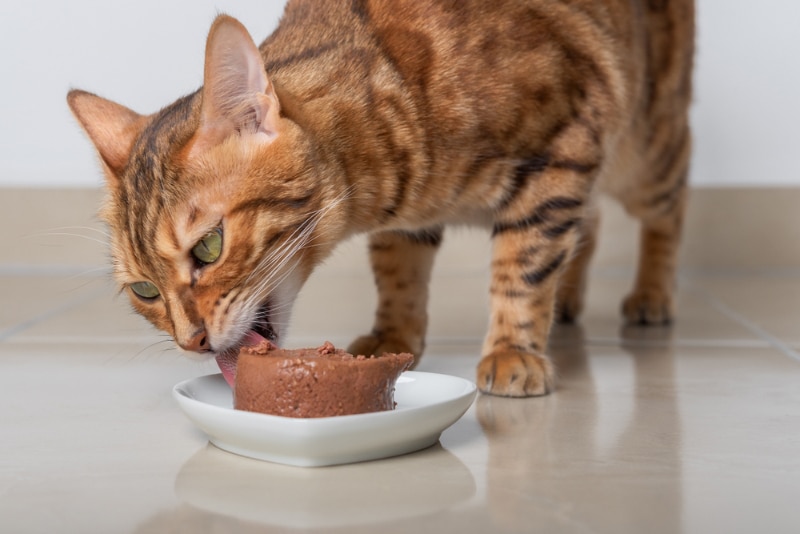
Begging
Cats are known to exhibit anticipatory behaviors when it’s close to their meal time4. These include the following:
- Pacing
- Meowing
- Purring
- Knocking things off shelves
- Sitting in your lap
- Following you and begging for food
- Compulsively meowing at you
- Demanding attention or pets from you
- Pawing at you to get your attention
If you are sensitive to your cat’s actions to solicit food from you and give in to their begging, they may quickly learn that they can get free meals from you. Therefore, your cat may begin to repeat the behavior. Many owners misinterpret this as hunger and continue to feed their cats. This leads to cats that comfort eat by manipulating their owners, and they often end up overweight or obese.
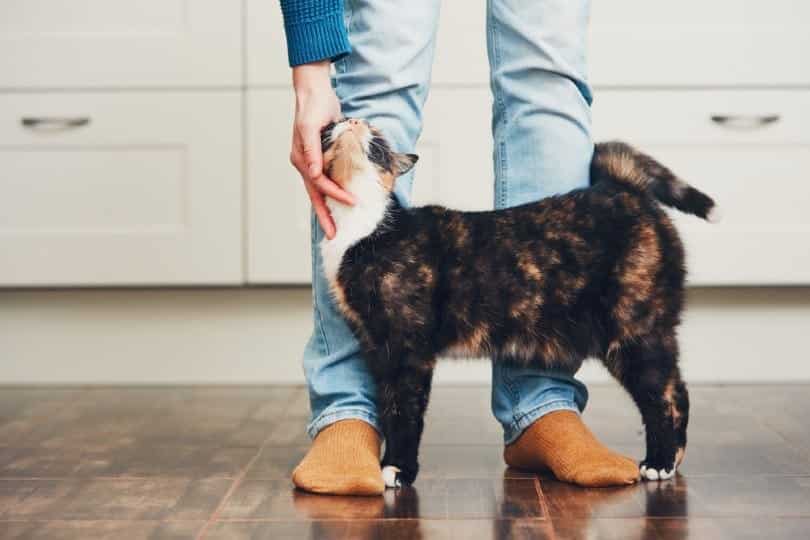

What About Stressed Cats?
Cats do like to overindulge in food (especially their favorite foods) and have an association with “comfort eating.” But what about cats that are stressed? After all, some people are known to overeat when they are stressed: Do our feline friends act the same way?
Contrary to popular belief, a cat that’s stressed or unwell will not overindulge. In fact, cats in this state often stop eating and tend to cease begging for food5. They may also refuse to eat if their owner tries to force them and may even lash out. Needless to say, this just makes matters worse.
Generally speaking, a healthy cat should have an appetite, so if your cat stops eating, it’s a strong indication that they require veterinary care. Felines are experts at trying to mask their illnesses, and a refusal to eat is likely a sign that something has stressed out your pet.
There will be serious consequences if your cat refuses to eat after just 2 days, so you shouldn’t try the patience game with your pet to see if they eventually return to eating like their usual self. Promptly schedule a vet visit if you notice that your cat is not eating.
If you need to speak with a vet but can't get to one, head over to PangoVet. It's an online service where you can talk to a vet online and get the advice you need for your pet — all at an affordable price!
Conclusion
If you’re worried that your cat is stress eating, rest assured that your cat isn’t actually stressed, as a stressed cat instead refuses to eat. In short, cats do not stress eat, and a cat that’s stressed and not eating requires veterinary care.
However, cats do tend to favor some food over others, and they can have poor self-control and eat out of impulse. Your cat might indeed consider certain meals to be comfort food and might be overindulging. This behavior can have adverse effects on their long-term health, so they should be treated with the assistance of your veterinarian and/or a feline behaviorist.
Featured Image Credit: Elayne Massaini, Shutterstock
